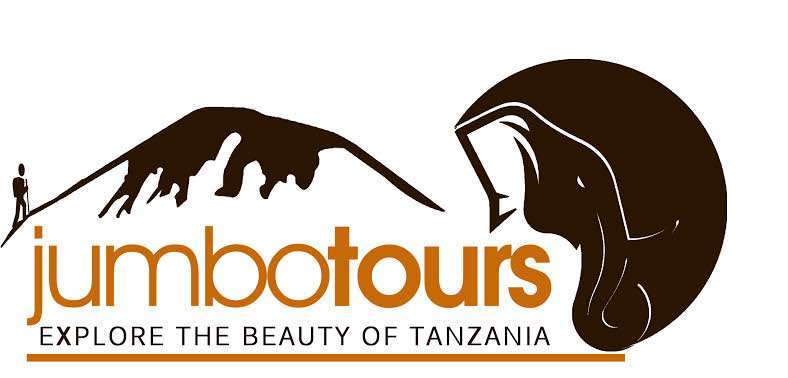Educational Wildlife Expedition in Tanzania: A Journey of a Lifetime
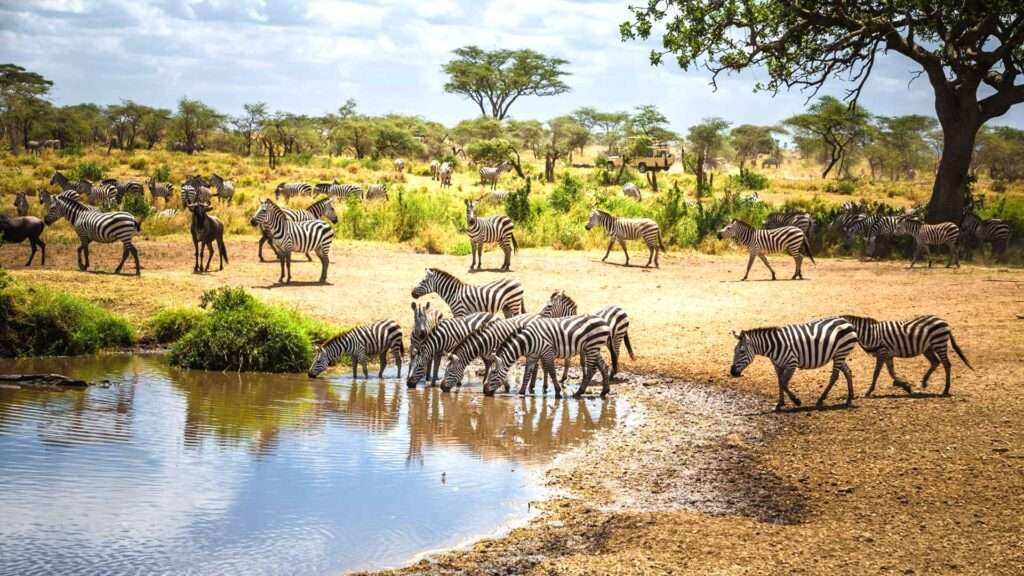
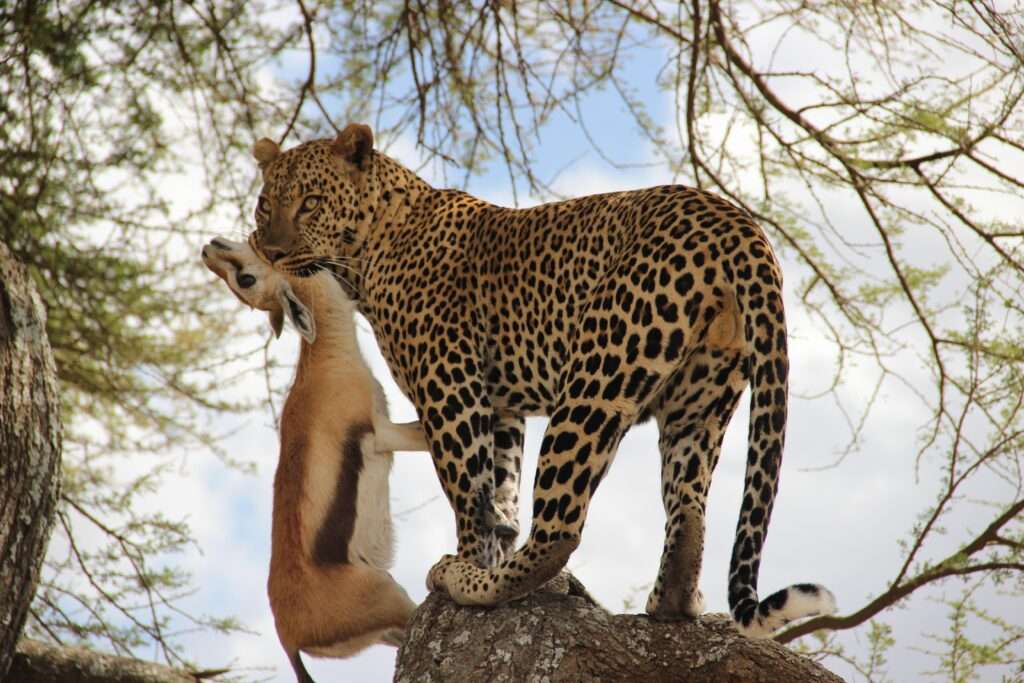
Welcome to the 7-Day Educational Wildlife Expedition in Tanzania: A Journey of a Lifetime! This meticulously curated itinerary invites you to embark on a captivating exploration of Tanzania’s diverse landscapes and remarkable wildlife. Over the course of seven days, you’ll delve into the heart of this East African gem, gaining unique insights into its ecosystems and participating in unforgettable wildlife encounters.
As a student on this expedition, you will not only witness the incredible biodiversity of Tanzania but also actively engage in a learning experience designed to broaden your understanding of conservation and natural history. Throughout the journey, you’ll discover the intricate relationships within Tanzania’s ecosystems, observing how flora and fauna coexist in various habitats. You’ll have the opportunity to observe and analyze the behaviors of diverse wildlife species, from the migratory herds of the Serengeti to the complex interactions in the Ngorongoro Crater, all under the guidance of experienced naturalists.
Your adventure includes a visit to Olduvai Gorge, a site that offers a fascinating glimpse into human evolution through archaeological discoveries. Moreover, you’ll gain insights into the challenges facing Tanzania’s biodiversity by visiting a local wildlife conservation center, where you can engage with experts actively involved in conservation efforts. This expedition also promotes cultural exchange as you interact with local communities, fostering a deeper appreciation for the symbiotic relationship between traditional practices and environmental conservation.
Throughout the journey, you’ll develop a sense of environmental responsibility, learning about sustainable tourism practices and understanding the importance of preserving these natural wonders for future generations. This expedition is not just a tour; it’s an immersive educational experience that encourages participants to become stewards of the environment. Join us as we blend adventure, discovery, and education into a journey that promises to leave a lasting impact on your understanding of the natural world. Welcome to the adventure of a lifetime!
Summary of the 7-Day Educational Wildlife Expedition in Tanzania
Day 1: Arrival Day - Your Epic Beginning
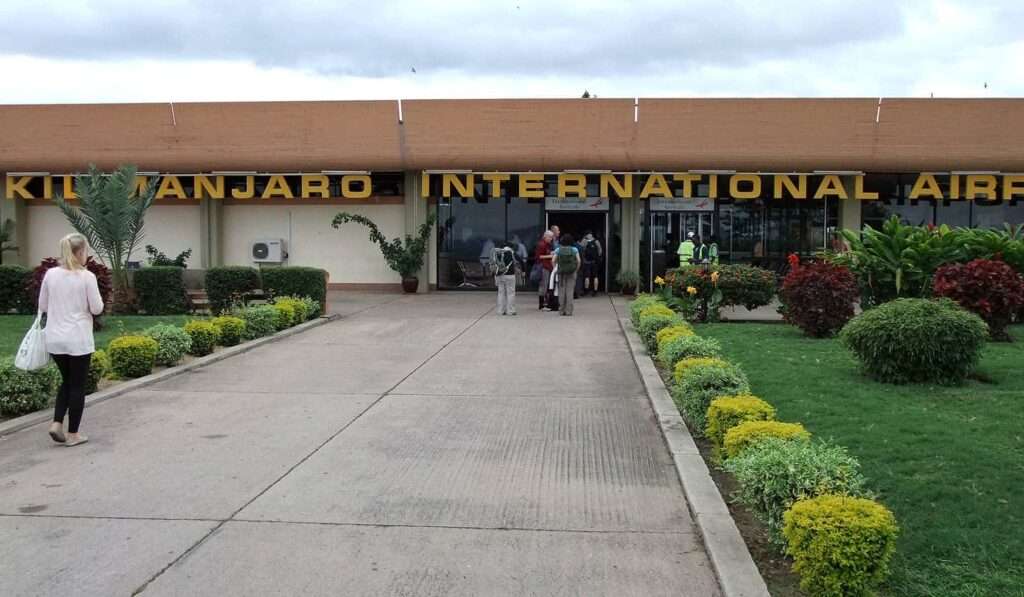
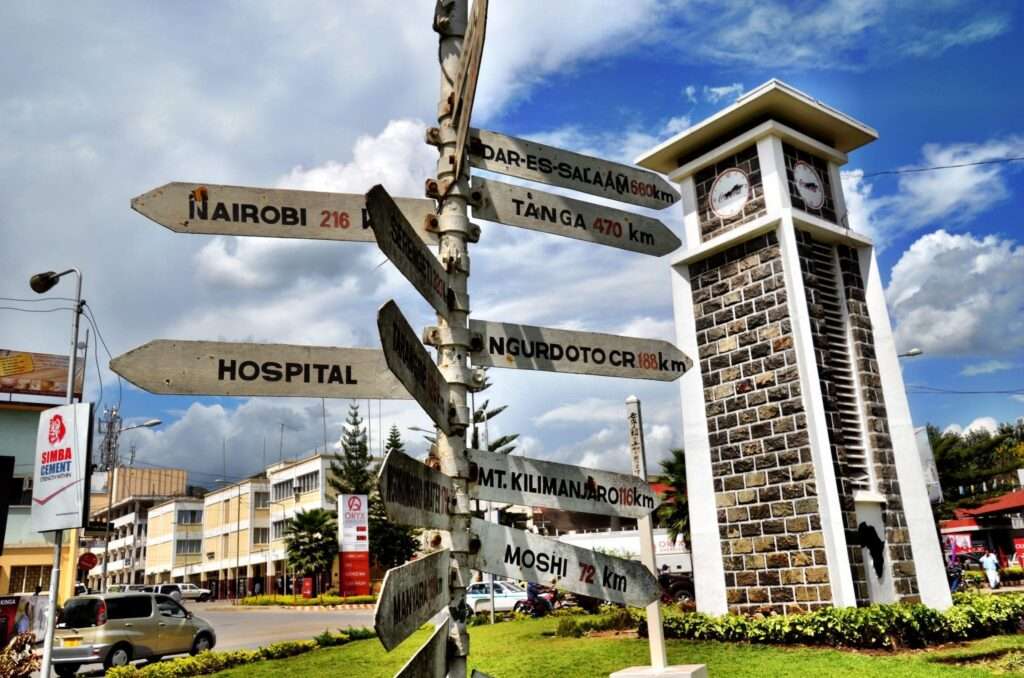
Day 1 serves as an orientation day for students arriving at Kilimanjaro International Airport. After landing, a pre-arranged transfer takes them to the town of Arusha, a common base for Wildlife Safari on the Northern Circuit in Tanzania. Upon reaching Arusha, students receive a warm welcome from the trekking company and guides. An initial briefing is conducted, providing essential information about the upcoming safari, including itinerary details, safety procedures, and equipment checks.
Depending on the safari company’s policies, an equipment check may take place to ensure participants have all the necessary gear for the safari. Any missing or inadequate equipment can be addressed in Arusha before the safari officially begins. This could be a hotel or lodge, depending on the safari package. Given the potential effects of jet lag and the need for physical preparation, the rest of the day is often designated for rest and relaxation. Students will have free time to explore Arusha, rest at the accommodation, or take part in optional activities.
Some students may choose to further explore Arusha or participate in optional pre-safari activities, such as cultural tours or visits to nearby attractions. In the evening, students come together for a group dinner, providing an opportunity for participants to get to know each other, ask last-minute questions, and foster a sense of camaraderie. As the safari often begins early in the morning on Day 2, students are encouraged to get a good night’s sleep to ensure they are well-rested for the start of the safari.
Students can expect the air in Arusha to be infused with excitement and anticipation, as the vibrant local culture and the promise of a safari set the stage for the adventure ahead. The evening group dinner not only provides a chance for logistical discussions but also marks the beginning of the collective journey, fostering a shared sense of determination and camaraderie that will accompany them throughout the safari.
Day 2: Lake Manyara National Park - Nature's Treasure Trove
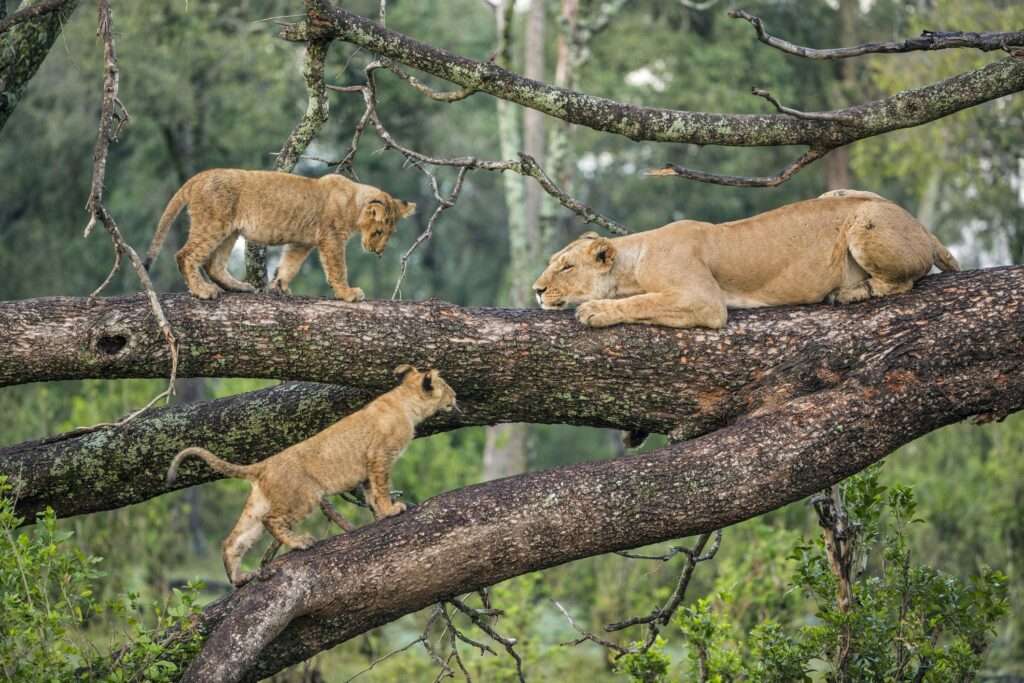
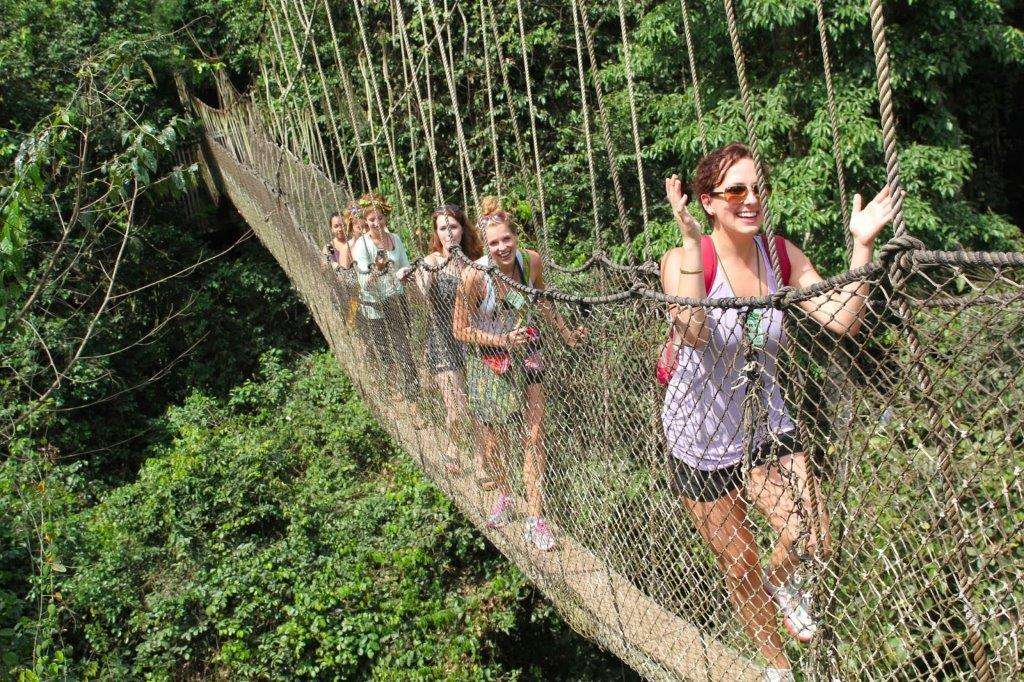
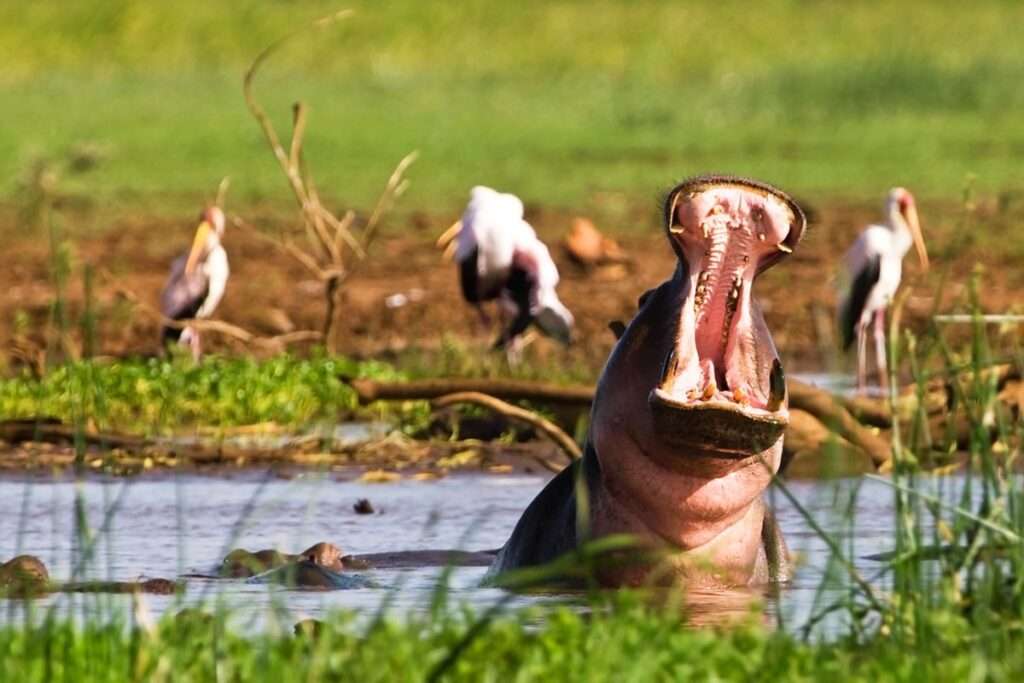
During this exploration, students will have the opportunity to observe and understand the intricate relationships within Lake Manyara National Park’s ecosystems. As they engage in the game drive, students will learn about the behaviors and adaptations of diverse wildlife species, gaining insights into the ecological balance that sustains this natural treasure trove. The focus on the tree-climbing lions provides a unique lesson in animal behavior and adaptation, prompting discussions on why these lions have developed such a distinctive habit. Students can explore concepts related to predator-prey relationships and the influence of the environment on animal behavior.
The visit to Mto wa Mbu village offers a cultural immersion experience. Students will learn about the traditions, customs, and daily life of the local tribes. This cultural exchange provides a valuable opportunity for students to broaden their perspectives and gain a deeper appreciation for the rich diversity of Tanzanian culture. The canopy walkway adds an ecological dimension to the learning experience. As students traverse the treetops, they can discuss the importance of different canopy layers in a forest ecosystem, the role of trees in supporting diverse life forms, and the significance of preserving these habitats.
The picnic by the hippo pools offers a chance for students to understand the importance of protected areas and conservation efforts. Discussions can revolve around the role of national parks in preserving biodiversity, the challenges faced by wildlife, and the strategies employed to ensure the coexistence of humans and animals.
As the day concludes with a sundowner, students can reflect on the significance of responsible tourism and the role it plays in sustaining these natural wonders. The discussion can extend to the economic and environmental impact of tourism on local communities and ecosystems. If a night game drive is part of the itinerary, students will have the opportunity to explore the nocturnal side of the park. This can lead to discussions on the adaptations of animals to the night environment, the importance of biodiversity conservation at all hours, and the role of ecotourism in promoting wildlife protection.
Throughout the day, students can actively engage in documenting their observations, fostering skills in field research, wildlife identification, and ecological awareness. Overall, the experiential learning opportunities in Lake Manyara National Park offer a holistic understanding of ecology, conservation, and the intricate interplay between nature and culture.
Day 3: Lake Eyasi and Serengeti - A Cultural and Wildlife Odyssey
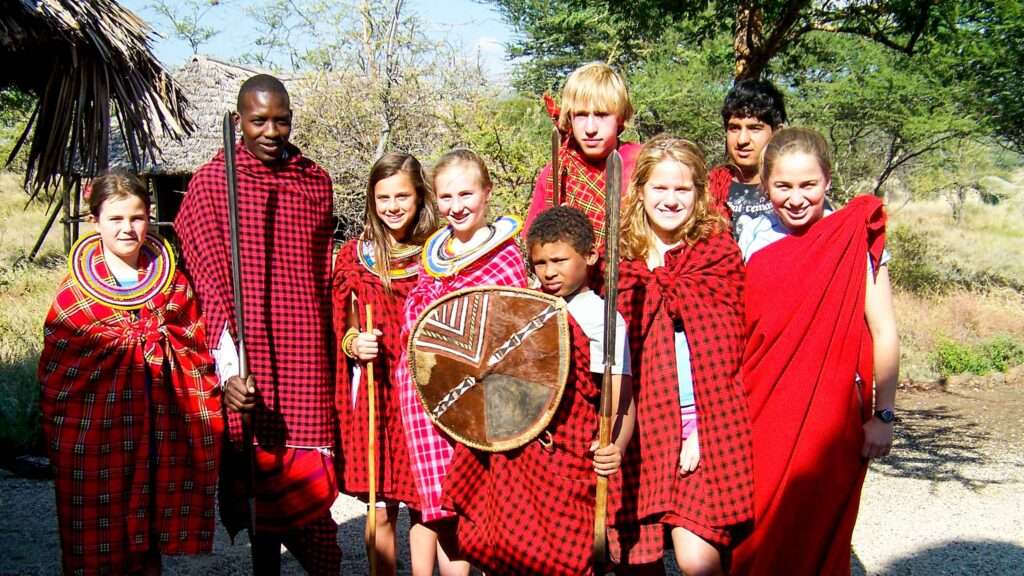
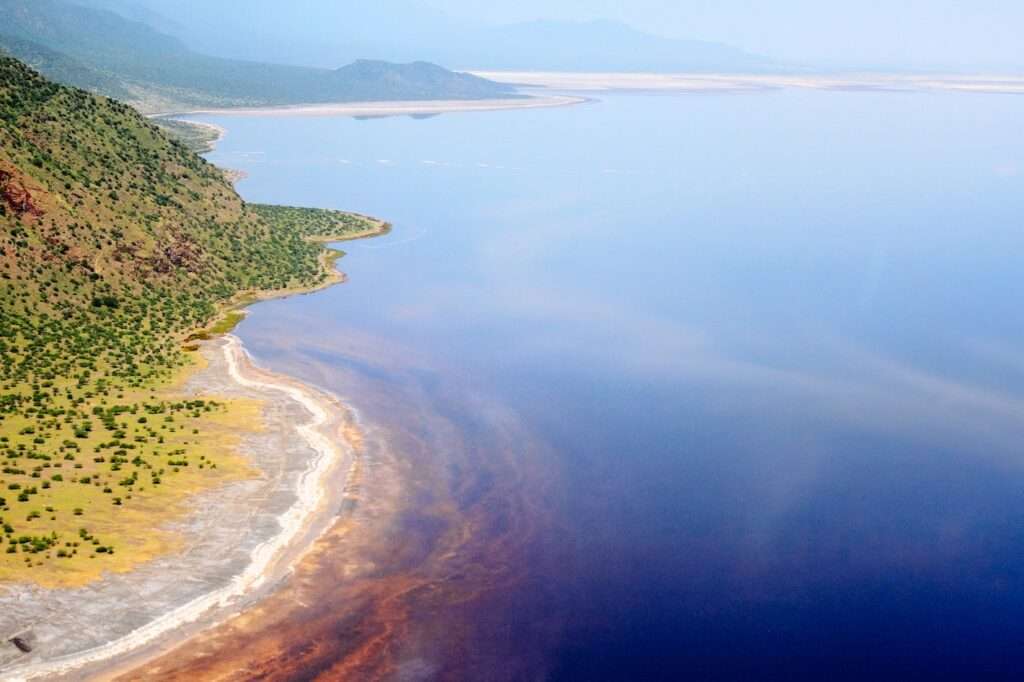
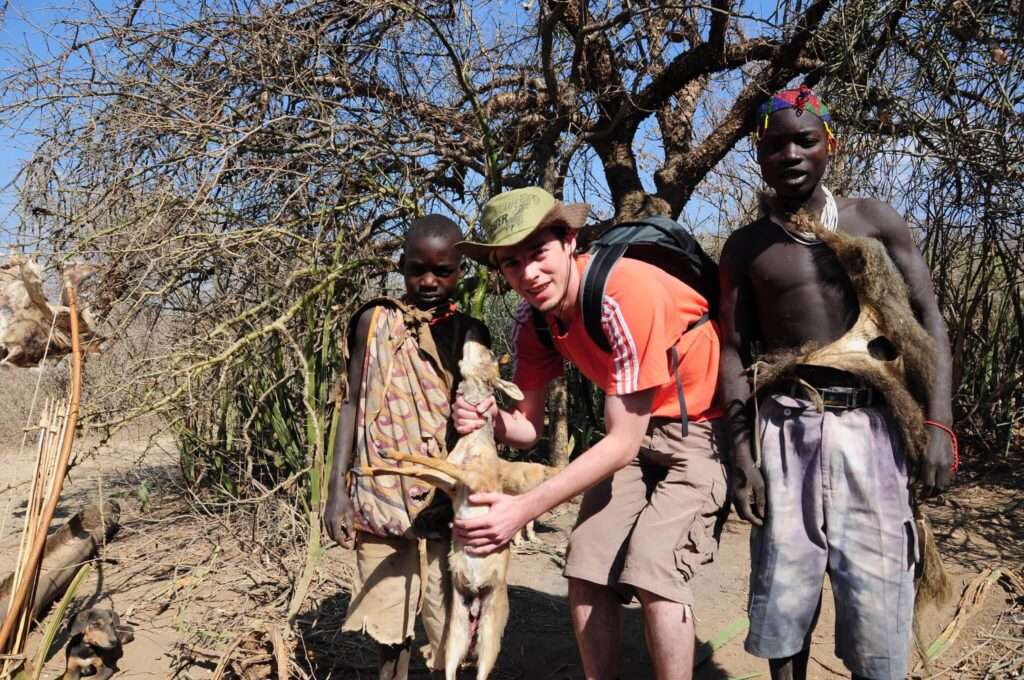
Embark on a captivating journey to Lake Eyasi, where cultural and natural treasures await. Immerse yourself in the traditions of the Hadzabe and Datoga tribes, experiencing a truly authentic cultural exchange. Continue your expedition to the iconic Serengeti National Park in our trusty safari jeeps. As you traverse the landscape, marvel at the diverse ecosystems and breathtaking scenery. Begin exploring the vast plains of the Serengeti, which are home to some of the world’s most renowned wildlife. Keep a keen eye out for the iconic “Big Five” — lions, elephants, buffalo, leopards, and rhinoceros — as well as the countless other species that call this magnificent park home.
As the day unfolds, gather around the campfire in the evening. Here, under the vast African sky, listen to enthralling tales of Serengeti legends shared by experienced guides. These stories will not only entertain but also deepen your understanding of the Serengeti’s rich history, fostering a connection to the natural world and igniting your curiosity about the wonders that lie ahead.
On this educational journey, students will gain a multifaceted learning experience. The visit to Lake Eyasi provides a hands-on opportunity for students to engage in ethnographic studies, documenting and analyzing the customs, rituals, and social structures of the Hadzabe and Datoga tribes. As the journey progresses into the Serengeti National Park, students will delve into the principles of biodiversity and conservation, discussing the delicate balance of ecosystems, the importance of preserving natural habitats, and the challenges faced by both wildlife and conservationists. In the Serengeti, students will enhance their wildlife observation and identification skills, learning to recognize various species, understand their behaviors, and appreciate the interconnectedness of the ecosystem.
The exploration of the Serengeti’s vast plains offers a living classroom for ecological studies. Students can explore concepts such as predator-prey relationships, symbiosis, and the role of keystone species in maintaining ecological balance. Gathering around the campfire for tales of Serengeti legends provides a unique opportunity for students to explore oral history and cultural narratives. They can analyze how stories are passed down through generations, shedding light on the interconnectedness of cultural and natural heritage.
Throughout the day, students will be exposed to the principles of sustainable tourism and environmental stewardship. They can reflect on the impact of tourism on local communities and ecosystems, considering ways to promote responsible travel and conservation efforts. This interdisciplinary learning approach blends cultural anthropology, biology, ecology, and environmental science, allowing students to draw connections between cultural practices, wildlife conservation, and the broader environmental context. By actively participating in these experiences, students will not only expand their academic knowledge but also develop a profound appreciation for the interconnectedness of cultures and ecosystems, fostering a sense of responsibility towards the preservation of our planet’s natural and cultural heritage.
Day 4: Serengeti National Park - A Day in the Wild
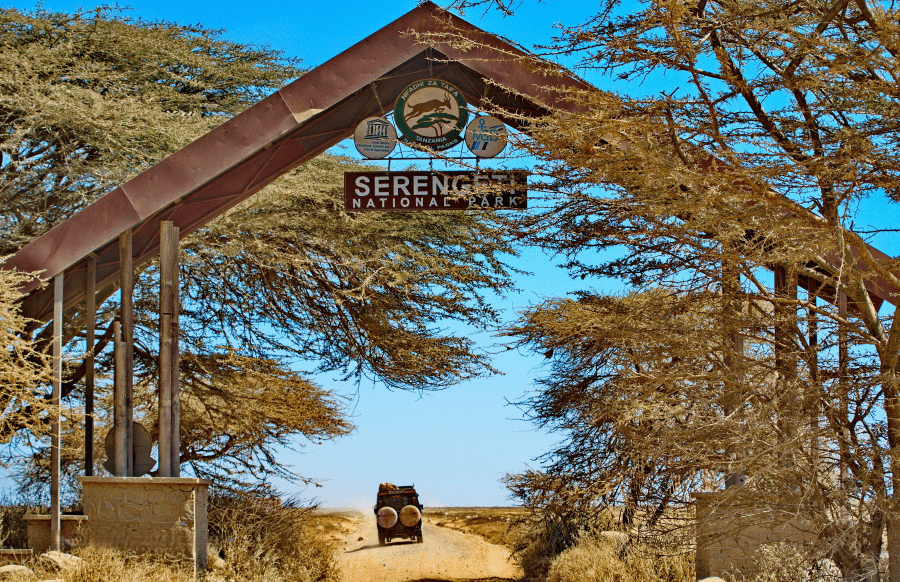

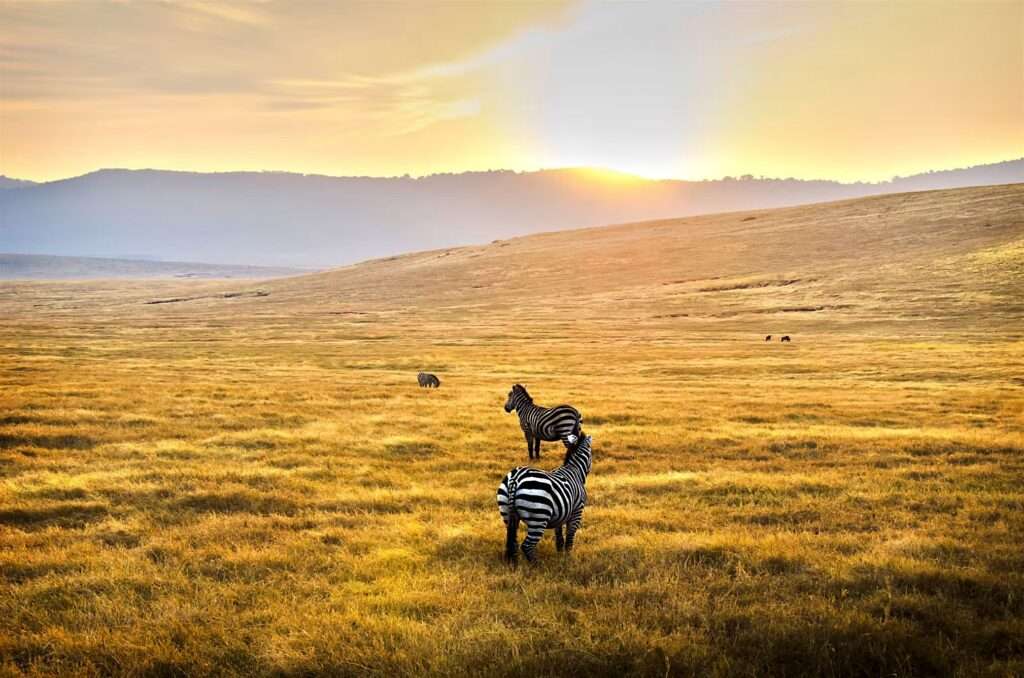
Embark on a full day dedicated to immersive game drives in the Serengeti, a vast and breathtaking landscape teeming with wildlife. Stand witness to the legendary Big Five—lions, elephants, buffalo, leopards, and rhinoceros—as well as the awe-inspiring wildebeest migration, a spectacle that showcases the incredible resilience of nature. Throughout the day, students will have the opportunity to gain profound insights into predator-prey relationships and the delicate balance of the ecosystem. Observing these interactions in their natural setting provides a firsthand understanding of the interconnected web of life within the Serengeti.
As the sun begins to set, engage in an evening discussion to fathom the ecological significance of the Serengeti. Explore the intricacies of the park’s role in preserving biodiversity, maintaining ecological balance, and contributing to the broader health of the planet. This open dialogue fosters a deep appreciation for the Serengeti as a true marvel of nature and encourages students to reflect on their roles as stewards of the environment. On this immersive day in the Serengeti, students will delve into a comprehensive learning experience. The full day of game drives provides an extensive opportunity for students to refine their wildlife observation and identification skills. They will actively engage in spotting and identifying various species, including the iconic Big Five, and learn about their behaviors and habitats.
Witnessing the awe-inspiring wildebeest migration offers a unique lesson in animal behavior and ecological dynamics. Students will learn about the migratory patterns, adaptations, and the critical role this phenomenon plays in the Serengeti’s ecosystem. Throughout the game drives, students will gain profound insights into predator-prey relationships. Observing lions stalking their prey, cheetahs in pursuit, and the strategies employed by herbivores for survival provides a firsthand understanding of the intricate balance that sustains the Serengeti. The day offers a living classroom for understanding ecosystem dynamics. Students will explore the interdependence of flora and fauna, the impact of keystone species, and the broader ecological principles that govern the Serengeti’s unique and diverse environment. Discussions during the evening session can extend to the conservation challenges faced by the Serengeti and strategies employed for its preservation. Students will explore the complexities of balancing conservation efforts with the needs of local communities and the importance of sustainable practices.
Engaging in an evening discussion provides a platform for students to reflect on their roles as environmental stewards. They can contemplate the ecological significance of the Serengeti and consider the broader implications for global conservation efforts. This day integrates biology, ecology, environmental science, and wildlife conservation into an interdisciplinary learning experience. Students will connect theoretical concepts learned in the classroom with real-world observations, fostering a holistic understanding of the natural world. Overall, this day in the Serengeti is designed to deepen students’ appreciation for the complexities of ecosystems, the importance of biodiversity, and the challenges and rewards of wildlife conservation. It aims to inspire a sense of responsibility and curiosity about the natural world, encouraging students to become informed and engaged global citizens.
Day 5: Olduvai Gorge, Maasai Boma, and Ngorongoro Area - Tracing Human History and Maasai Culture
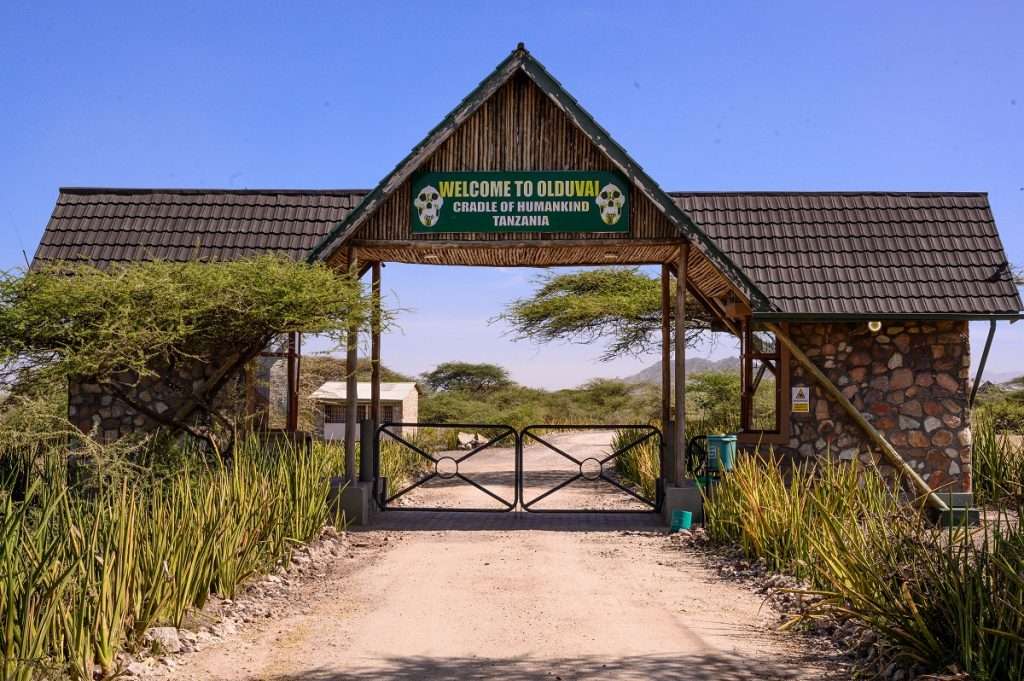
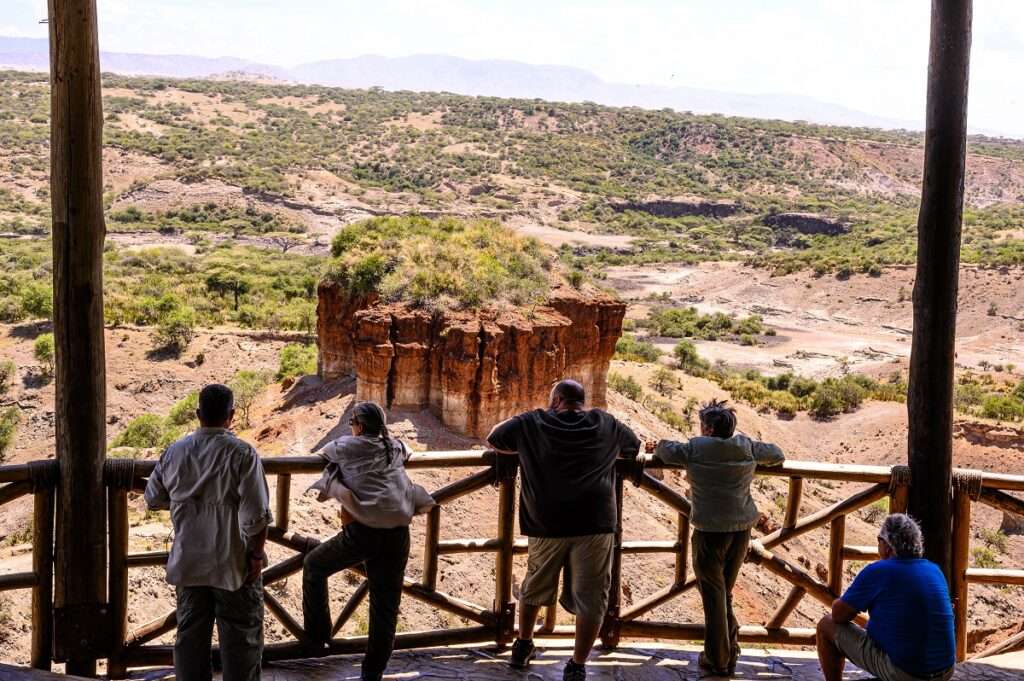
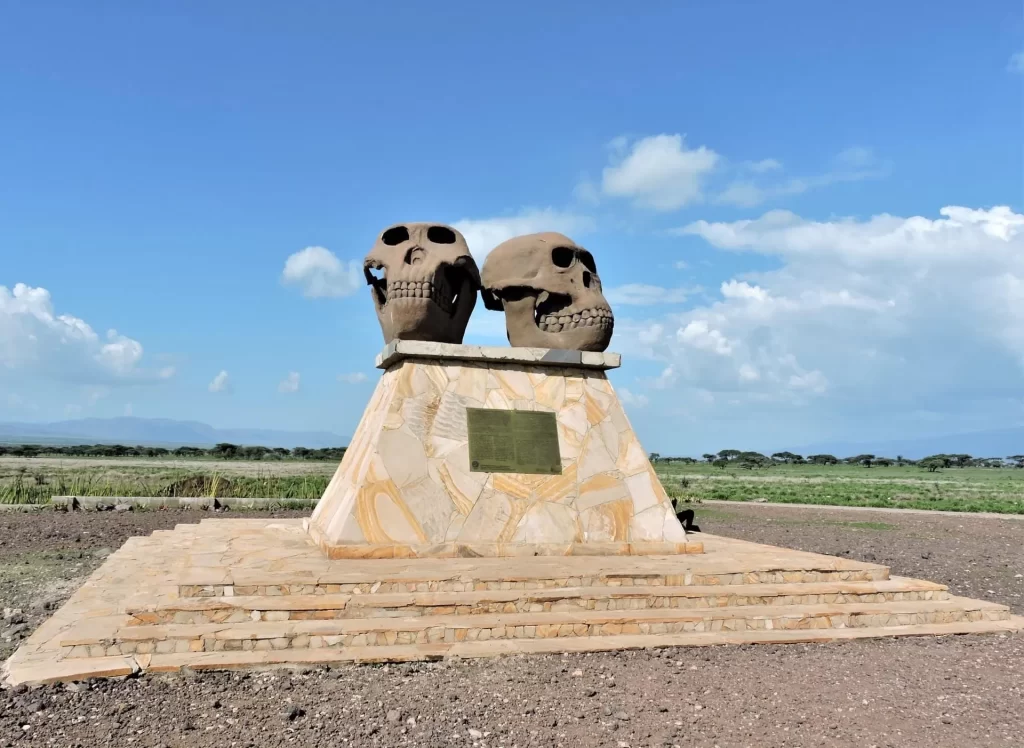
In the morning, we will visit Olduvai Gorge, a crucial archaeological site often referred to as the “Cradle of Humankind.” A guided tour will provide in-depth insights into the evolutionary history of humans, showcasing the groundbreaking discoveries of early hominid fossils by paleoanthropologists Louis and Mary Leakey. Students will explore the gorge and its museum, gaining a profound understanding of our ancestors’ journey, the methods of paleoanthropological research, and the significance of Olduvai Gorge in unraveling the mysteries of human evolution.
In the afternoon, we’ll immerse ourselves in the Maasai culture by visiting a traditional Maasai village, or Boma. Through engaging cultural activities such as traditional dance, beadwork, and hands-on experiences, students will learn about the nomadic lifestyle, distinctive clothing, and social structure of the Maasai people. A communal lunch with the Maasai community will not only offer students the opportunity to savor local dishes but also engage in meaningful conversations with community members, fostering cross-cultural understanding and appreciation.
Later in the day, we’ll embark on a safari to the Ngorongoro Area in reliable safari jeeps. As we traverse the Ngorongoro Conservation Area, students will have the chance to observe wildlife in their natural habitat, gaining insights into the region’s diverse ecosystems, the delicate balance of its flora and fauna, and the ongoing conservation efforts. An experienced safari guide will provide information on the various species encountered, their behaviors, and the challenges of wildlife conservation in the area.
Upon reaching our accommodation within the conservation area, students can participate in additional educational activities, such as workshops or discussions led by local experts, focusing on topics like sustainable tourism, wildlife conservation, and the coexistence of communities with protected natural areas.
In the evening, a local expert or resident naturalist will conduct a lecture on the secrets of the Ngorongoro Conservation Area, a UNESCO World Heritage site. Students will gain further insights into the geological features of the crater, the unique biodiversity it supports, and the cultural significance of the area to local communities. The lecture will provide a comprehensive overview of the complex interplay between nature, culture, and conservation in the region.
The day will conclude with dinner at the camp, providing an opportunity for students to share their experiences and reflections with fellow travelers. Optional night activities may include stargazing, taking advantage of the clear African skies, and campfire stories, allowing students to unwind and build camaraderie after a day filled with rich cultural and educational experiences.
Day 6: Ngorongoro Crater and Return to Arusha - A Day of Wonder and Reflection
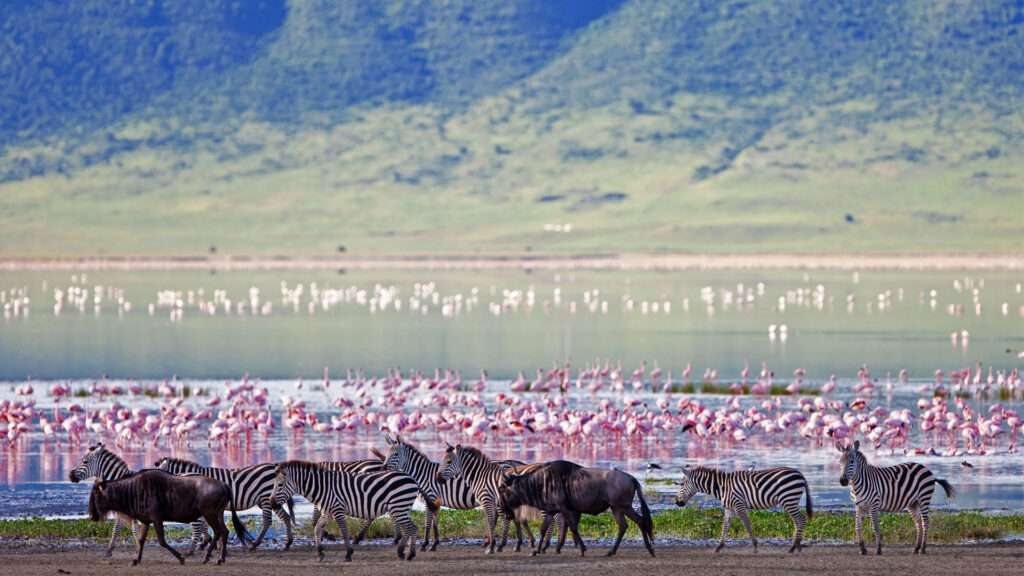
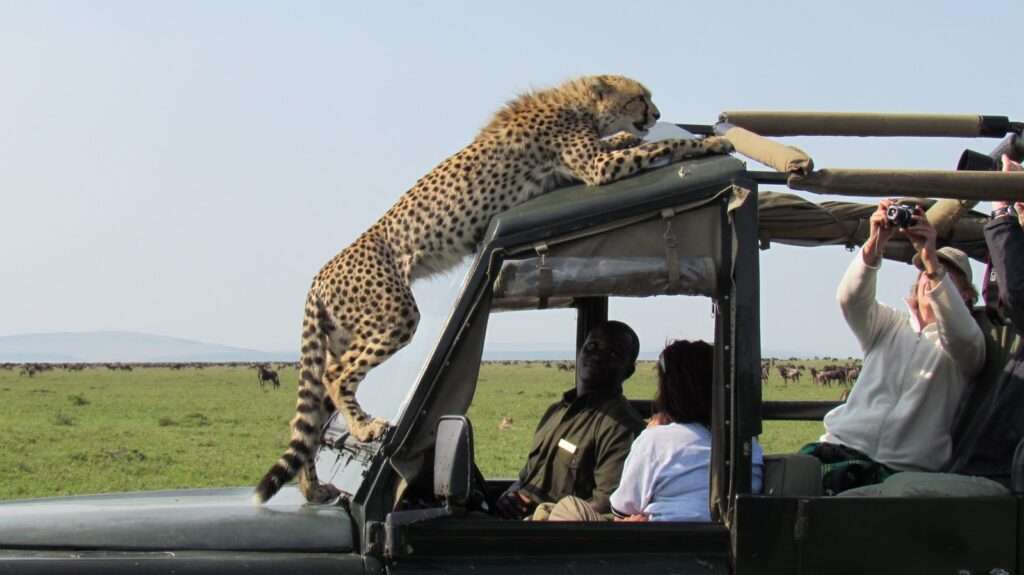
Today, your safari adventure takes you to the renowned Ngorongoro Crater, a natural marvel that promises a day filled with awe-inspiring moments and profound insights into wildlife conservation. As the sun rises, descend into the Ngorongoro Crater, an ancient volcanic caldera. Engage in a captivating wildlife observation experience, encountering a diverse range of species, from the majestic African elephant to the elusive black rhinoceros. Gain insights into animal behaviors, ecological interactions, and the significance of biodiversity in this unique ecosystem. Midday offers a chance to pause and appreciate the beauty that surrounds you. Enjoy a picnic lunch, savoring local cuisine amidst the breathtaking landscapes of the crater. Your guides will share details about the flora and fauna, emphasizing the delicate balance that sustains life in this natural haven.
Take a moment for personal reflection on the profound experiences of the day. Consider the delicate harmony of nature and the impact of human activities on these ecosystems. Guides will provide valuable insights into conservation efforts, addressing the challenges faced by local wildlife and the urgent need for preservation. Understand the interconnectedness of global conservation and the role individuals play in safeguarding our planet’s biodiversity.
As you journey back to Arusha in the evening, reflect on the day’s learnings. Consider the broader implications of wildlife conservation and the responsibility each person bears in preserving our natural heritage. Your return signifies not only the end of a remarkable day but also the beginning of a commitment to environmental stewardship. Tonight, carry with you the knowledge gained from witnessing the wonders of the Ngorongoro Crater. Your safari experience extends beyond the thrill of wildlife encounters; it’s an educational journey fostering a deeper understanding of the delicate ecosystems that make our planet extraordinary.
Day 7: Departure - Carrying the Torch of Knowledge and Wonder

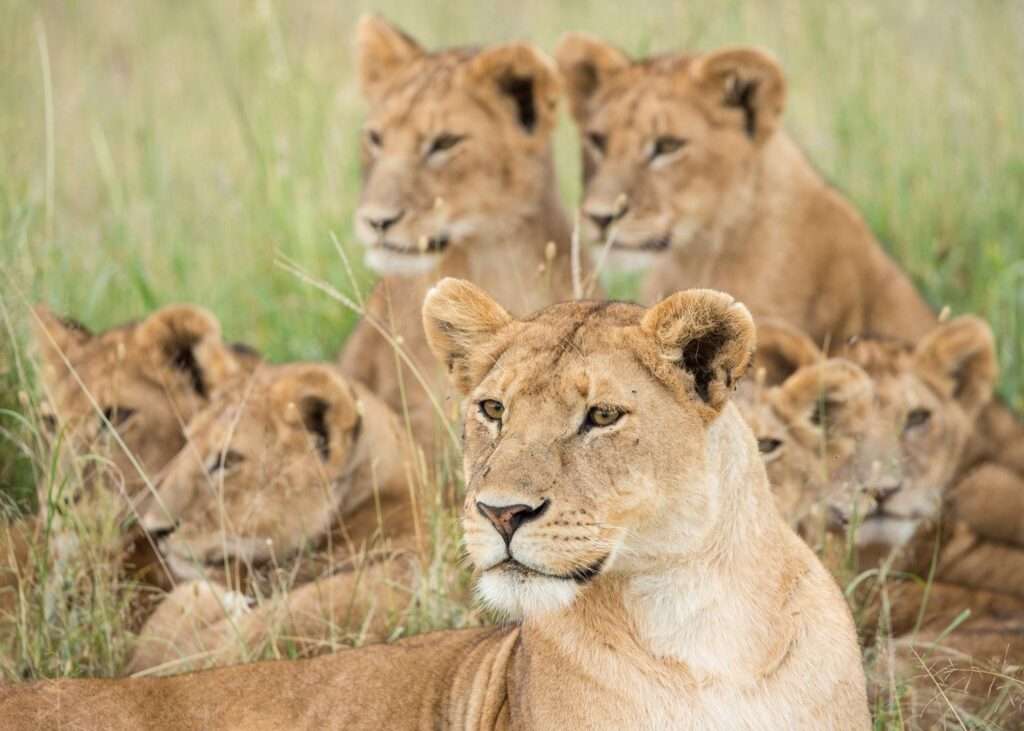
On the seventh and final day, known as Departure Day, participants bid farewell to the awe-inspiring landscapes of Tanzania and the memories forged during their Safari. This day marks the conclusion
of the transformative journey, and as participants prepare to depart, they carry with them a wealth of experiences and newfound perspectives.
The morning typically involves packing, exchanging contact information with newfound friends, and expressing gratitude to the guides and support staff who played an integral role in the success of the
expedition. These farewells become poignant moments, emphasizing the bonds formed during the safari and culture. As participants leave Arusha, they reflect on the personal and collective growth fostered by the Safari. The experience serves as a metaphor for life’s challenges, reinforcing the resilience, determination, and teamwork needed to overcome obstacles. The lessons learned on the mountain extend into various facets of life, creating a lasting impact on the individuals who embarked on this remarkable journey.
Departure Day is not just the end of an adventure; it’s the beginning of a new chapter for each participant. The memories, lessons, and friendships forged during the Safari will continue to resonate,
shaping their perspectives, fostering a sense of accomplishment, and inspiring future endeavors. As participants board their flights homeward, they carry the spirit of Serengeti and Ngorongoro with them, forever enriched by the challenges met and the heights attained on Africa’s natural wanders.
Book Your Study Tour With Us
Embark on your educational journey with confidence – book your study tour with us and unlock a world of knowledge, experiences, and endless possibilities. Your path to academic enrichment begins here!

Unlock the doors to your next adventure! Book now and enjoy the journey with an exclusive 10% discount. Your story begins with a single click.
Why Book With Us
1. Expert Guidance
2. Curated Learning Experiences.
3. Safety and Security
4. Global Networking Opportunities
5. Cost-Effective Packages
